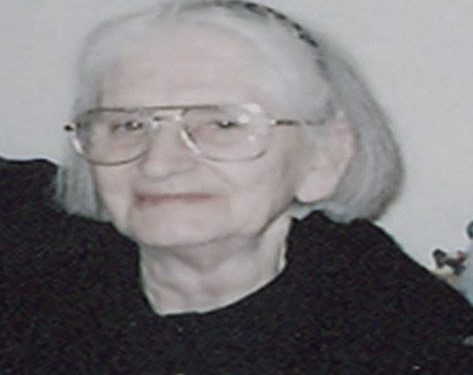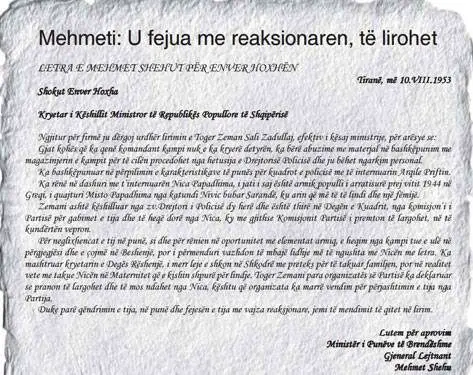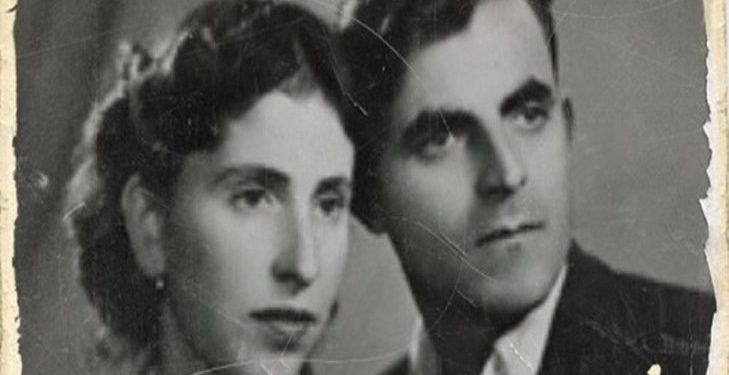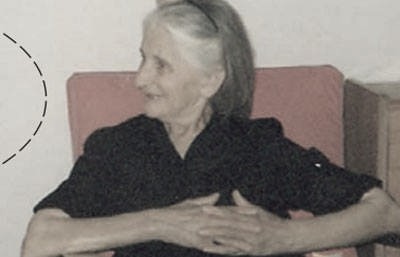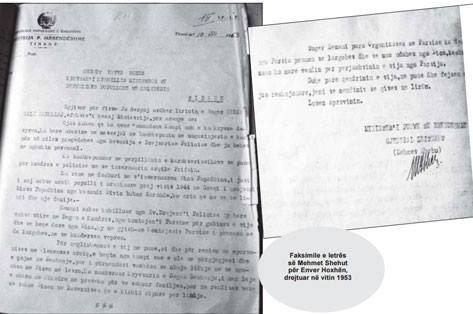By Elisabeta Ilnica
-The unknown incident with the rebel officer from Tepelena, which shocked the senior communist leadership, up to Enver Hoxha and Mehmet Shehu-
Memorie.al / She was very beautiful, beautiful and talkative. A nivicjote that he did for himself, but… she was the daughter of the “enemy”. Many people were afraid to talk to him, because at that time you could suffer him for little, while Zeman Saliaj went so far as to take him as his wife. That’s because he was straight-headed, that’s why he had warm shoulders, Zemani didn’t ask about anyone. An unusual love, born in the conditions of exile, except that he was the director and she was the convict. A story whose echo went all the way up to Enver Hoxha and Mehmet Shehu.
The Communists established the concentration camp system as soon as they took power in late 1944. The original purpose of the camps was to deport the families of political prisoners and host displaced families of the former lower classes to occupy their homes with members of the new regime.
Later, when the resistance against communism began, massive attempts to escape abroad began. These camps were further expanded to include all elements deemed dangerous to the regime, disobedient villagers, families or relatives of those who had managed to flee the country.
From September 15, 1947, former Prime Minister Enver Hoxha admitted the existence of concentration camps. In a big speech held in Shkodër, he declared that the opposing elements were interned in such camps. Thus, starting after the break with Tito, the Information Bureau in 1948, the government of Tirana began removing large numbers of people, taking people from one part of the country and placing them in concentration camps in another corner.
Towards the end of 1949, after the assassination of Bardhok Biba, the Minister of the Interior, General Mehmet Shehu, undertook a large series of deportations. In a punitive expedition, in this province, he removed about 400 people from the province, to the camps of the South. As a rule, people from the North were sent to camps in the South, especially in Tepelena, Himarë (Porto Palermo), Fier, Berat, etc. While the people of the South were exiled to Krujë, Burrel, Kamzë, Valias, Cërrik and other places in the North.
This is what happened to the family of Misto Papadhima, a lawyer who escaped to Greece, but whose wife and 5 daughters ended up in the Kruja camp. Where from the cruelty of exile a love was born, the happy end of which is unprecedented in the dictatorship of Enver Hoxha…!
Nica was the eldest daughter of the Papadhima family, from Nivica e Delvina. Her father, lawyer Misto Papadhima, was a partisan during the War. After liberation, he came out openly against the communist dictatorship, which was rapidly being installed. He escaped to Greece, right after the liberation, in December 1944, after he had been informed beforehand that an arrest warrant had been issued for him.
His property was confiscated, including his house. Wife Ana and five daughters; Nica, Lilika, Minerva, Elsa and Jorgjia were interned with only their body clothes. After changing several internment zones, in 1950, they were sent to the Kruja camp, a barbed-wire fence guarded by the police.
They were under the supervision of the camp commander, Lieutenant Zeman Saliaj, who was also the prison director. At that time, Zemani was at the peak of his career, he had been the director of the internment camp in Tepelena, and he had moved to Kruja, he was quite a favorite of the Minister of the Interior at that time, Mehmet Shehu, so much so that he was rumored to be his deputy minister.
But his career was turned upside down, from the moment he met Nica, for whose love he abandoned everything and from prison director, he ended up in an office in Sukth. This bond was so strong that even after the direct interventions of the Minister of the Interior Mehmet Shehu, the couple could not be separated.
Mehmet Shehu’s efforts stopped when he found out that they were secretly engaged and Nica was born in Shkodër, Zeman’s son. Then the Minister of the Interior sent a letter to Enver Hoxha, where he asked for the release of Zeman, with the argument: “Seeing his attitude at work and his engagement with reactionary girls, we are of the opinion that he should be released. Please approve. Minister of Internal Affairs, Lieutenant General Mehmet Shehu”.
NICA, IRRESISTIBLE
In the various reports of the year 1950-1953 from the Interior Branch that are made about the connection between Zeman and Nice, it is noticeable that; despite the fact that she is constantly described as “the enemy’s daughter”, “reactionary”, etc., the fact that she is very beautiful is emphasized.
“She is full of grace and irresistible”, it is written in one of the letters, as if to somehow justify the choice of Zeman and alleviate the “guilt” of marrying the “class enemy”. In another letter, which the deputy director of the Kruja Police, sends to the Ministry of Internal Affairs, it is stated, among other things, that; “besides being a fairy, Nica is loud-mouthed and cross”.
“It’s hard to talk to both of them. Zemani and Nica show differently and act differently. They are secretly engaged. Nica is very beautiful and agile and has spoiled Zeman’s mind. She is expecting a child and we have nothing more to do, Zemani has made up his mind to take her,” the letter says.
After these reports, Enver Hoxha and Mehmet Shehu “surrendered”, leaving the couple to continue their lives. They took Zeman’s house on “Rrugë e Kavaja” and took him to live in a room, on the outskirts of Tirana, where he gave birth to and raised 3 other sons.
She was hired at Sukthi’s SMT, in the office, while Nica initially started well as an economist, but soon ended up as a cleaner in the garden. Zeman Saliaj passed away in December 1993, while Nica died in November 2014. In the same room, where the communist regime sent her to live…!
Concentration camps
Of the 40 political prisons and concentration camps that have been in operation in Albania since 1944, it is said that over 16,000 people lost their lives in a period of 10 years. It is learned that since the end of the war, 80,000 people have passed through these prisons and concentration camps. The total number of inhabitants in them is estimated to be 10-15 thousand people, while the number in political prisons is estimated to be around 10 thousand.
Since the end of the war, a number of amnesties have been decreed in Albania, but they have been driven mainly by a desire of the authorities to get rid of unproductive elements and make room for new achievements. These data are made public by the second chapter of the US government’s report on the violation of human rights in 1955, entitled “Forced labor in construction camps in Albania”.
The remains of the father
Nica never got to meet her father, Misto Papadhima, while he was alive. He died on the run, in Greece, and after the fall of the communist regime, she started searching for her father’s remains. He managed to find her and performed a ceremonial reburial in Tirana, next to her mother, Ana. Memorie.al




